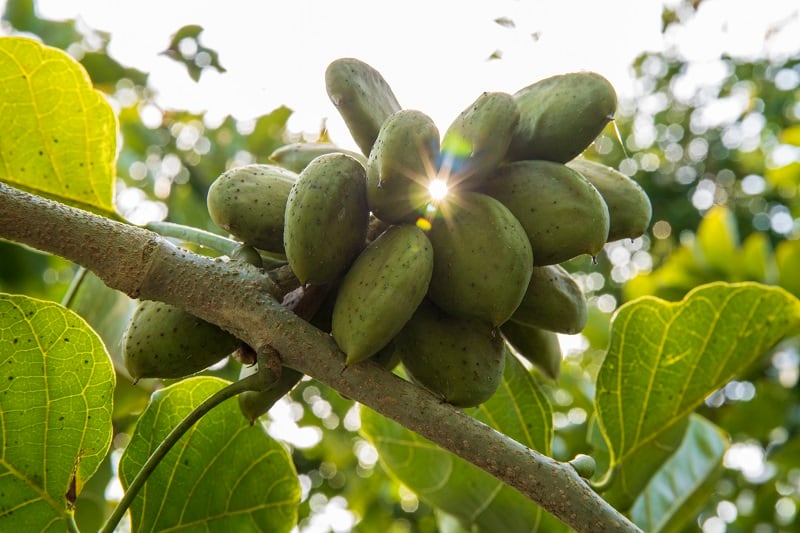Thanks to rising sea levels, 833 million hectares of soil are already affected by salinization with the problem expected to worsen, according to the Food and Agriculture Organization. This affects a significant portion of crop production, making land unsuitable for effective cultivation and thereby reducing yield, resulting in losses estimated at over US$20 billion each year.
One solution? Denmark-based Agrobiomics has developed a plant biostimulant – produced via a proprietary bacterial fermentation process – enabling growers globally to increase yields of crops affected by abiotic stress such as salinity and drought.
The biostimulant is both potent and affordable, the Agrobiomics team told AgTechNavigator.
Field trials on tomatoes in Spain, where it was added to a drip irrigation system, produced a yield increase above 20%. It has also been used in soybean seed treatments – again producing yield increases above 20% after harvest. In both cases, under a teaspoon of biostimulant was used per hectare.
“It can have a major impact at very low doses,” said Mathilde Nordgaard R&D director and co-founder. “It's an unheard of yield increase,” added Ejner B. Jensen CEO and co-founder. “The farmer can use it without having to do anything differently. You normally would not see yield increases much more than 10%, so this is a totally unique product delivering more than 20% yield increases under stress conditions. Under normal conditions we see no difference.”
How do biostimulants improve crop resilience?
The biostimulant is produced from an organic compound found in a wild bacterial strain and the company’s proprietary fermentation process. “It is inducing robustness in plants so they survive and grow better under non-optimal growth conditions like drought and salinity,” explained Jensen. “We stimulate the plant to overcome stress. We don't replace fertilisers; we make the plant produce more efficiently.”
“The compound is produced in nature already by soil microorganisms. We deliver so little, but at the right location, so you get the plant systemic response. The good thing for us is that we are talking about a million times smaller amounts than you would normally see for other biostimulants.”
“There are not a lot of products that actually work for abiotic stress. There are some like seaweed, but you need a lot of it. We are talking about less than a teaspoon per hectare for a pronounced effect.”
This pronounced effect will be the same, the pair believe, on a host of salad crops seed coating crops such as corn, barley, rice and wheat, mung bean.
"The data indicates it's a generic response across different crops because all the crops we have tested to seems to work,” Nordgaard told us. “But we are focussing on what's suffering from salinity and drought and where there is a market opportunity.”
Target markets include southern Europe, where lack of water is an increasing problem, and developing countries in Africa.
“This compound is very potent, so we need very little,” stressed Nordgaard. “There's no production barrier, which make it affordable to a lot of developing countries. And we do see this effect across a lot of different crops, so it really has huge potential.
The start-up, which was founded in 2022, has so far won around €3 million in funding, including loans from the BioInnovation Institute and Innovation Fund Denmark.
It believes it is well set to attract more partners and funds for trials and thanks to a lack of efficient, affordable solutions and amid a growing need for food security and for sustainable breakthrough innovations.
Should investors be making bigger bets on biologicals?
Jensen also called on big agricultural companies to begin making ‘riskier’ bets on biologicals to help players expand. “That's the challenge in developing biologicals in ag. You need the money to do the field trials, but you need the field trial results before investors give you the money. Nobody wants to take the initial risk. We are lucky as we've got funding so far. That makes it easier for us to build a base. But to make it really big we need the ag companies to also take a responsibility. They need to make more riskier investments to make agriculture more sustainable for the long term. They cannot wait until all the risk has been removed and then come in.”




